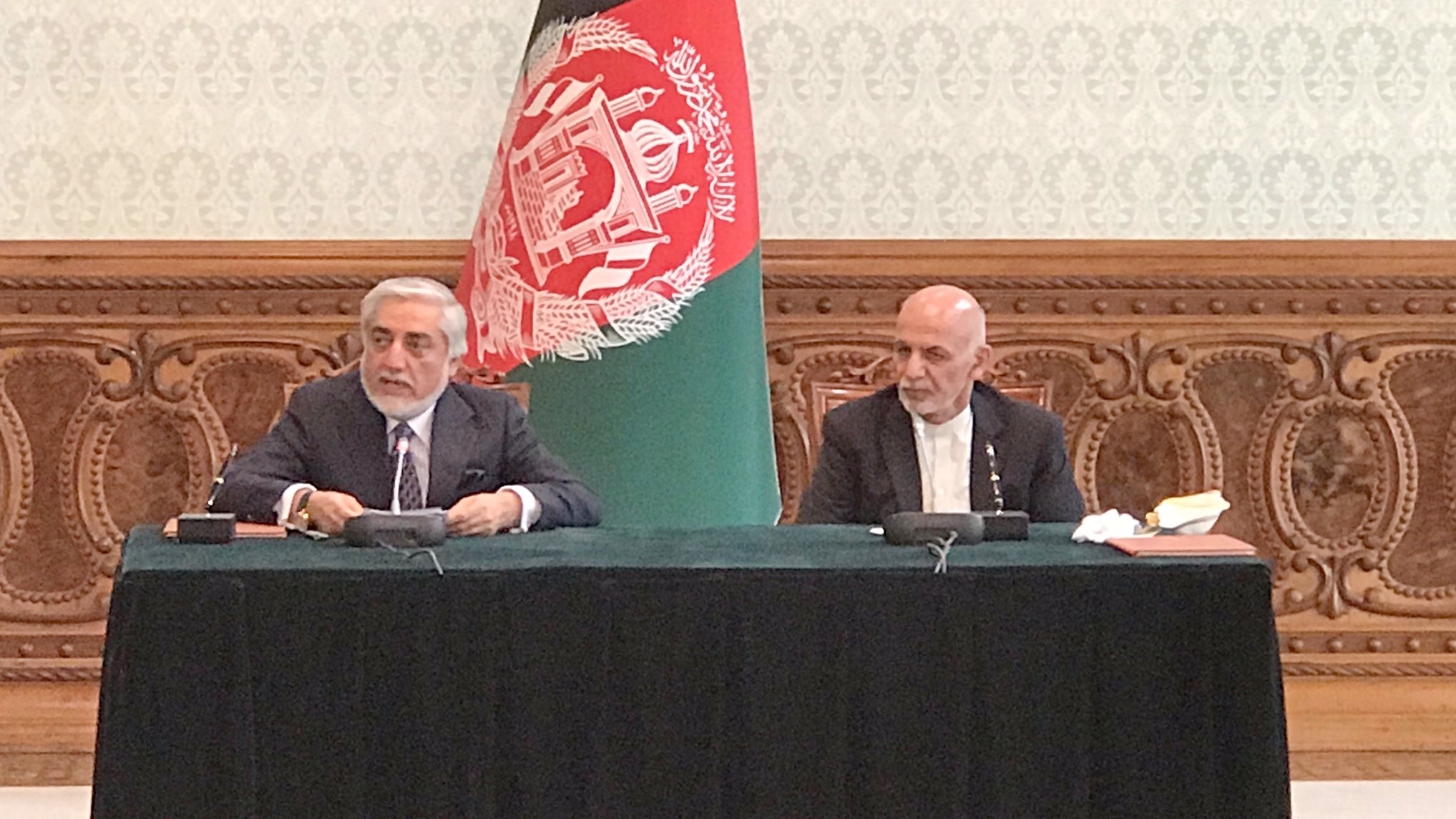A senior U.S. envoy left for Doha and Kabul on Sunday to press Taliban and the Afghan government officials to open peace talks that the United States hopes will allow it to withdraw from Afghanistan, the U.S. State Department said.
Zalmay Khalilzad, the U.S. special representative for Afghanistan, left one day after Afghan President Ashraf Ghani and his rival Abdullah Abdullah signed a power-sharing deal that could help lead to peace talks to end the country's long-running war.

Afghan security forces arrive at the site of an attack in Kabul, Afghanistan, May 12, 2020. /Reuters
Afghan security forces arrive at the site of an attack in Kabul, Afghanistan, May 12, 2020. /Reuters
While in Doha, Khalilzad will meet with Taliban officials to discuss carrying out a February 29 U.S.-Taliban agreement that called for prisoner releases by both sides and to "press for steps necessary to commence intra-Afghan negotiations, including a significant reduction of violence," the State Department said.
In Kabul, Khalilzad will meet with senior government officials "to explore steps the Afghan government needs to take to make intra-Afghan negotiations begin as soon as possible," it added.
The key provisions of the February 29 agreement, to which the Afghan government was not a party, involved a U.S. commitment to reduce its presence in Afghanistan to 8,600 troops by mid-July and, conditions permitting, to zero by May 2021.
The three main impediments to the start of intra-Afghan negotiations, which were to begin March 10, have been a rise in violence, the pace of prisoner releases and the failure of Ghani and Abdullah to resolve a power struggle.
A set of brutal attacks in Afghanistan on May 12 has thrown the very idea of a peace process into question. Many are asking whether that process is dead before it ever got underway.
The number of people who were killed in a militant attack on a maternity ward in the Afghan capital has risen to 24, the health ministry said after the attack.
In a second incident that day, a suicide bomber killed at least 32 people at a funeral in Nangarhar Province, in the east of the country.
It is still not clear who carried out the attack at the Dasht-e-Barchi hospital in Kabul, and the Taliban have denied any involvement.
Meanwhile, the Taliban claimed a deadly attack on an Afghan intelligence agency post Monday, even as they urged the new power-sharing government to accelerate a prisoner swap to pave the way for talks.

Afghanistan's President Ashraf Ghani (R) and Afghanistan's Chief Executive Abdullah Abdullah. /Presidential Palace spokesman Sediq Sediqqi's Twitter page
Afghanistan's President Ashraf Ghani (R) and Afghanistan's Chief Executive Abdullah Abdullah. /Presidential Palace spokesman Sediq Sediqqi's Twitter page
The bombing comes a day after the signing of the new power-sharing accord in Kabul.
In the power-sharing deal between Ghani and Abdullah, it is still not clear which ministerial positions Abdullah's camp would control but spokesman Sediq Sediqqi said on Twitter that Abdullah would lead the council for peace talks and his team members would be included in the cabinet.
Abdullah and Ghani contested the 2014 presidential election, with both claiming victory. To avert a full-blown conflict, then-U.S. secretary of state John Kerry brokered a deal between the two that left Abdullah as the country's chief executive.
As for the prisoner exchange under the U.S.-Taliban deal signed in February, Kabul has so far released about 1,000 Taliban prisoners, while the militants claim to have freed 263 government captives.
(With input from agencies)